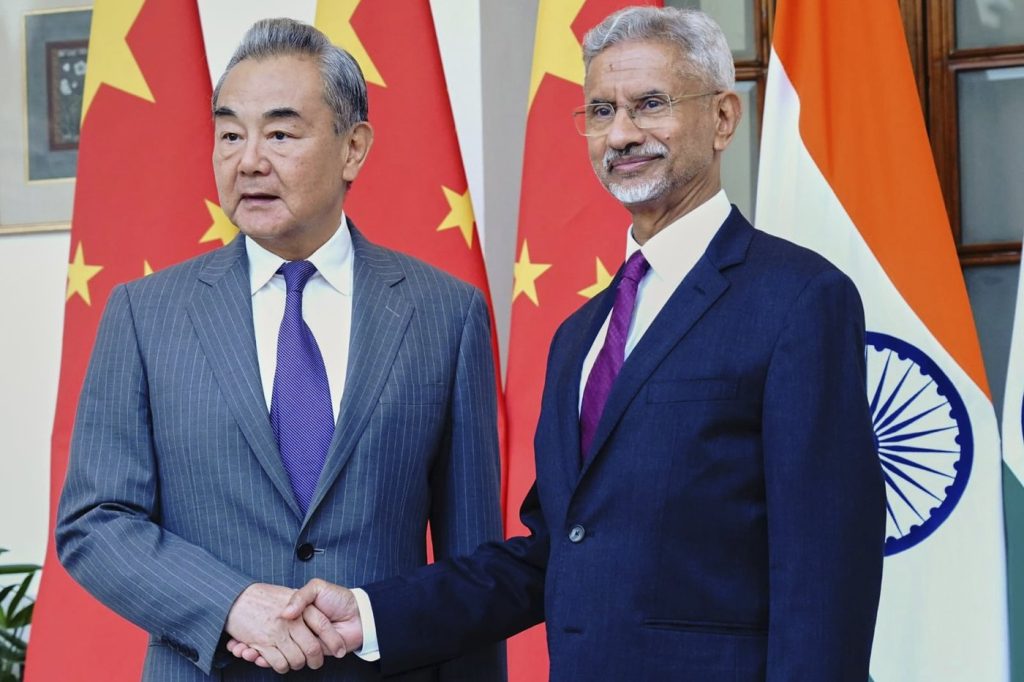NEW DELHI (AP) — Indian Prime Minister Narendra Modi is scheduled to meet with Chinese Foreign Minister Wang Yi on Tuesday, marking a potential thaw in relations between the two nuclear-armed nations. This meeting reflects efforts to ease tensions that have simmered for years, particularly over a long-standing border dispute in the Himalayan region.
Wang Yi arrived in India on Monday and is expected to engage in discussions with Modi and National Security Adviser Ajit Doval concerning border issues. Key topics on the agenda include reducing military presence along the border and reviving trade. Both nations have been impacted by recent geopolitical shifts, including growing friction between India and the United States due to tariffs imposed by U.S. President Donald Trump on Indian imports.
The historical tensions between India and China escalated significantly in 2020 following a violent confrontation in the Ladakh region, leading to a large military buildup on both sides of the border. This deterioration affected multiple aspects of their relationship, including trade and diplomatic engagements. Since then, however, there have been some signs of rapprochement.
In the past year, India and China reached an agreement on border patrols and achieved a partial withdrawal of troops from certain areas. Both countries continue to fortify their border infrastructure with new roads and rail networks. Recent official visits and discussions have focused on facilitating trade, easing restrictions on the movement of citizens, and restoring business travel. Notably, China has permitted Indian pilgrims to visit sacred sites in Tibet and both countries are working to restore direct flight routes.
According to Randhir Jaiswal, a spokesman for India's Foreign Ministry, the two nations are also in talks to renew trade through various checkpoints along their 3,488-kilometer border. However, Manoj Joshi, a fellow at the Observer Research Foundation, expressed that the normalization of relations remains tenuous. He emphasized that resolving the boundary disputes requires significant political compromise from both sides.
China's Foreign Ministry spokesperson Mao Ning indicated that Beijing views Wang Yi's visit as an opportunity to manage differences and promote stable development in bilateral relations. The dialogue aims to ensure peace in the border areas, continuing the effort to maintain communication and cooperation.
The dialogue between India and China has gained momentum since a meeting last October between Modi and Chinese President Xi Jinping at a summit in Russia—their first face-to-face meeting in over two years. Modi is also anticipated to visit China later this month for the Shanghai Cooperation Organization summit, which will be his first visit to China in seven years.
This gradual thaw in relations is notably coinciding with deteriorating ties between New Delhi and Washington. Trump's administration has implemented a 50% tariff on Indian goods and additional penalties for Indian imports of Russian oil. Conversely, India has been strengthening its economic agreements with Russia despite the U.S. tariffs.
Trump's recent outreach toward Pakistan—a country that India views as its historical rival—also appears to have prompted India to seek closer ties with China. The geopolitical landscape is becoming increasingly complex, especially considering China's significant investments in Pakistan and the challenges of managing relations with two adversaries simultaneously.
Overall, while the recent diplomatic efforts between India and China may suggest a path towards improved relations, significant challenges remain in addressing the underlying border issues and restoring confidence in bilateral ties.











